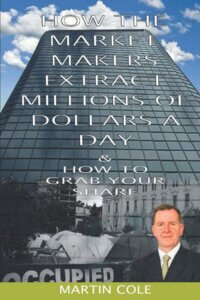Ever wondered who ensures that your stock trades go through seamlessly? Meet the market makers, the behind the scenes players who keep financial markets fluid and efficient. Let’s delve into what they do, how they earn, and how you can step into this pivotal role.
What Is a Market Maker?
A market maker is a firm or individual committed to buying and selling securities at publicly quoted prices, thereby providing liquidity to the markets. They stand ready to purchase at the bid price and sell at the ask price, facilitating smooth transactions for traders and investors.
Core Functions:
Providing Liquidity: By consistently offering to buy and sell securities, market makers ensure that there’s always a counter party for trades, enhancing market fluidity.
Stabilizing Prices: Their continuous activity helps narrow the bid-ask spread, leading to more stable and transparent pricing.
Assisting in Price Discovery: Through their trading activities, market makers contribute to determining the fair market value of securities.
Inventory Management: They maintain inventories of various securities, adjusting holdings in response to market demand and supply dynamics.
Market makers operate across diverse financial instruments, including stocks, bonds, options, and commodities, often collaborating with exchanges like the NYSE or Nasdaq to uphold orderly markets.
How Do Market Makers Earn?
Market makers primarily profit from the bid-ask spread, the difference between the price at which they’re willing to buy (bid) and sell (ask) a security. For instance, if a market maker buys a stock at $10 (bid) and sells it at $10.05 (ask), they earn a $0.05 spread per share.
Additional Revenue Streams:
High Trading Volumes: Executing a large number of trades amplifies profits, as even minimal spreads accumulate over numerous transactions.
Exchange Incentives: Some exchanges offer rebates or incentives to market makers for providing liquidity and enhancing market quality.
Earnings Potential:
Individual Market Makers: Entry level positions may offer annual salaries ranging from approximately $60,000 to $120,000, with performance based bonuses. Experienced professionals can earn upwards of $200,000 depending on expertise and firm size.
Market Making Firms: Leading firms like Citadel Securities and Virtu Financial report substantial profits, reflecting the scale and efficiency of their operations.
 Pathway to Becoming a Market Maker
Pathway to Becoming a Market Maker
Embarking on a career as a market maker involves a blend of education, skill development, and practical experience. Here’s a roadmap to guide you:
1. Educational Foundation
Undergraduate Degree: Pursue studies in finance, economics, mathematics, or computer science to build a solid analytical base.
Advanced Certifications: Consider obtaining credentials like the Chartered Financial Analyst (CFA) designation to enhance your market knowledge and credibility.
2. Skill Development
Quantitative Proficiency: Hone your ability to analyze and interpret complex financial data.
Technological Acumen: Learn programming languages such as Python or R, which are instrumental in developing and understanding trading algorithms. Market Insight: Stay informed about various financial instruments and market dynamics to make informed trading decisions.
3. Professional Experience
Entry Level Roles: Start as a trading assistant or junior trader at financial institutions to gain hands-on experience.
Networking: Engage with professionals in the field through industry events and professional associations to build valuable connections.
4. Licensing and Certification
Regulatory Exams: In the U.S., pass the Financial Industry Regulatory Authority (FINRA) exams, such as the Series 7 and Series 57, to become a registered representative authorized to trade.
5. Securing a Position
Apply to Market Making Firms: Target firms known for their market making operations, including both specialized trading firms and investment banks with dedicated trading desks.
Demonstrate Competence: Showcase your analytical skills, market knowledge, and ability to operate under pressure during the recruitment process.
6. Continuous Learning
Stay Updated: Financial markets are dynamic; ongoing education and adaptability are crucial to maintaining a successful career in market making.
Conclusion
Market makers are vital to the seamless operation of financial markets, ensuring liquidity and facilitating efficient trading. Their role not only supports market stability but also offers lucrative career opportunities for those with the requisite skills and determination. If you’re intrigued by the intersection of finance and technology and thrive in fast-paced environments, a career as a market maker could be a rewarding path to explore.
Suggested Further Reading:
How the market makers extract millions of dollars a day & How to grab your share – by Martin Cole
Here in this book, you will find a trading method that can be applied to all financial markets. The reason this works is because this is how the market maker runs their business.
Available on Amazon




